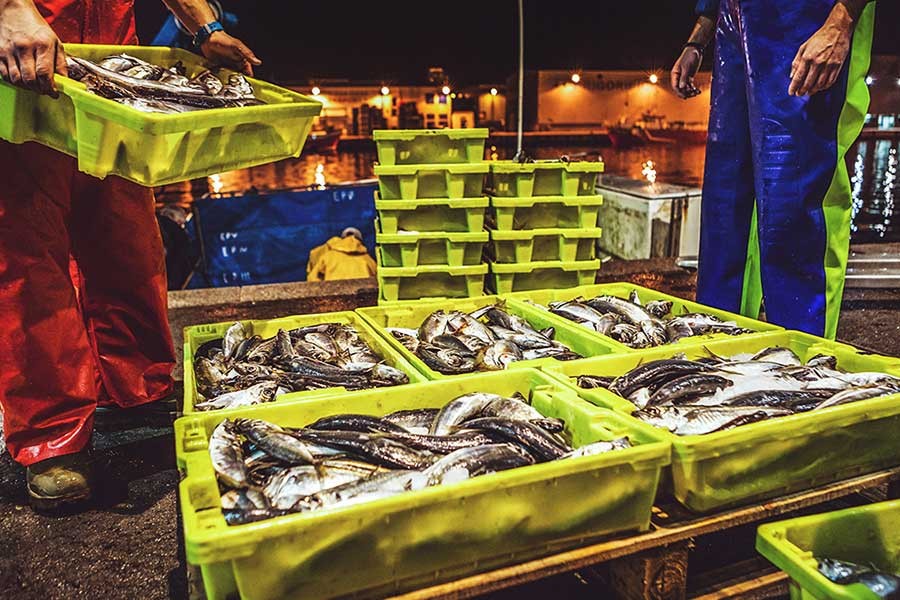Disciplining the harmful subsidies on fishing will be an important deliverable agenda in the 11th ministerial conference (MC11) of the World Trade Organisation (WTO). Member countries of the organisation have already reached an 'unofficial consensus' in this regard. In principle, they have agreed that limiting the harmful fishery subsidies is essential to protect the valuable fish resources globally. Now they are working to prepare a draft text to outline the rules and methods of containing the harmful fishery subsidies. It is likely that a text will be drafted and circulated before the MC11, scheduled to be held on December 10-13 this year in Buenos Aires, the capital of Argentina.
According to the latest study report of the United Nations Conference on Trade and Development (UNCTAD), fish has become the world's most traded food commodity and demand for fish is continuing to grow strongly.
Latest statistics of Food and Agriculture Organisation (FAO) showed that global production of fish reached 167 million tonnes in 2014 while human consumption stood at 146.3 million tonnes. Production of fish has increased by 3.2 per cent annually in the last five decades. The growth in fish production has been sustained by the rapid expansion of aquaculture and global aquaculture production has tripled, growing at an average annual rate of 8.3 per cent in the last three decades. In 2014, aquaculture constituted 44 per cent of world fish production, compared with 26 per cent in 1994.
The FAO report also revealed that fish is one of the highest value commodities in world trade and accounts for approximately 10 per cent of total world agricultural exports. Exports of fish as a proportion of total fishery production increased to 37 per cent in 2012 from 25 per cent in 1976. Developing countries are exporting more fish than the developed countries. Contribution of fish to the national economies of many developing countries is quite significant. Some of these countries provide different types and quantities of subsidies for fishing. In many cases, these subsidies promote unregulated and illegal fishing. This creates difficulties for other countries, especially small and poor ones, to preserve their fish stocks as well as maintain their market shares.
SDG LINK: Limiting fishery subsidies is a mandate endorsed by the Doha Development Agenda in 2001. It was reaffirmed in the Hong Kong ministerial conference in 2005. The core message of the mandate is: make a global rule to prohibit certain forms of fisheries subsidies that contribute to overcapacity and over-fishing. Illegal, unreported and unregulated (IUU) fishing is ultimately trade distorting. Products from IUU fishing enter global market and undercut products from legal activities.
Goal-14 of the Sustainable Development Goals (SDGs), adopted by the United Nations in 2015, also clearly calls for curbing the IUU fishing. The SDG Target-14.6 states: "By 2020, prohibit certain forms of fisheries subsidies which contribute to overcapacity and over-fishing, eliminate subsidies that contribute to illegal, unreported and unregulated fishing and refrain from introducing new such subsidies, recognising that appropriate and effective special and differential treatment for developing and least developed countries should be an integral part of the World Trade Organization fisheries subsidies negotiation."
The call to formulate a global rule to regulate fishery subsidies through the WTO is a positive move. It will help to preserve the fish resources and restrict over fishing. Fish trading will also be disciplined.
Currently there are seven proposals under consideration to prepare the draft text. These proposals have been placed by 'Friends of Fishes' (a coalition of 10 developed and developing countries), LDCs (Least Developed Countries) and 10 other developed and developing countries. Some counties have placed common proposals with their respective groups but have also made independent proposals. For example, the United States has made a joint proposal with the 'Friends of Fishes' and has also placed another proposal independently. Again, some of the proposals have been tabled this year while some others are basically slightly revised versions of earlier ones.
A matrix has been developed to review the proposals smoothly. The proposals, in general, focus on definition of different types of fishery subsidies; method of disciplining these subsidies; special and differential treatment; notification, review and monitoring mechanism, etc.
A clear set of definitions, distinguishing positive subsidies from the negative ones, is very essential to reach any agreement on the issue of fishery subsidies.
A mini-ministerial meeting in the early October in Morocco will try to reach a consensus on the deliverables of the MC11. Fishery subsidies will be one of them. The Morocco meeting is expected to set the final tone of Buenos Aires conference.
IMPORTANCE FOR BANGLADESH: Disciplining fishery subsidies in the multilateral trade forum has immense importance for Bangladesh. Fisheries sector contributes around 4.0 per cent to the country's Gross Domestic Products (GDP) and 33 per cent to agriculture output. Fish is an important source of protein and supplement around 60 per cent of the animal protein intake in the country.
Currently, fishing activities in the country is not well regulated. It is estimated that around 18 million people are directly and indirectly engaged in fishing activities. Fish export from the country is gradually increasing.
Thus, it is very important for the country to conduct a detailed study on the probable implications of WTO mechanism to discipline fisheries subsidies.


